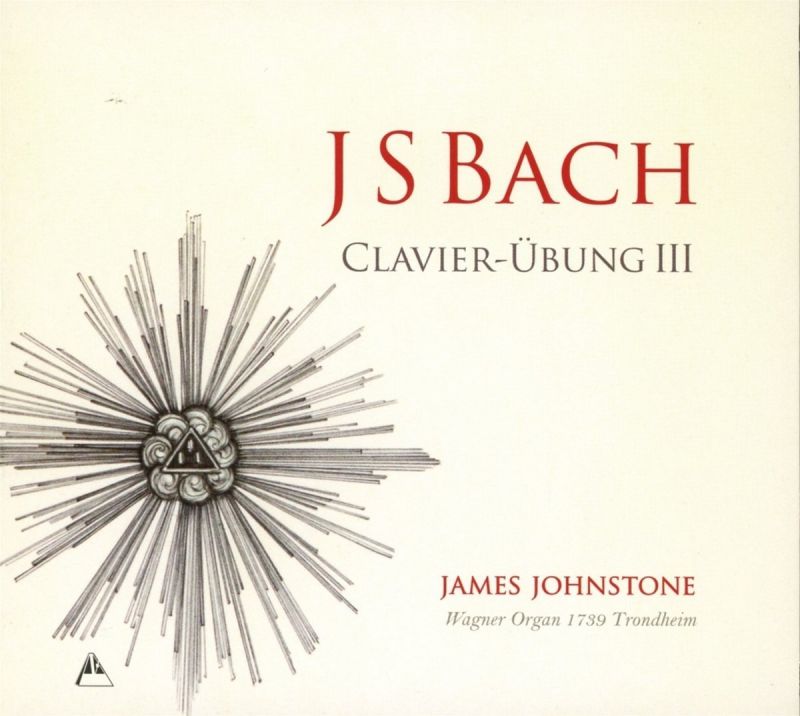JS BACH Clavier-Übung III, BWV669-89
View record and artist detailsRecord and Artist Details
Composer or Director: Johann Sebastian Bach
Genre:
Instrumental
Label: Resonus Classics
Magazine Review Date: 08/2016
Media Format: Download
Media Runtime: 105
Mastering:
DDD
Catalogue Number: RES10120

Tracks:
| Composition | Artist Credit |
|---|---|
| Clavier-Übung III |
Johann Sebastian Bach, Composer
Johann Sebastian Bach, Composer Stephen Farr, Organ |
Composer or Director: Johann Sebastian Bach
Genre:
Instrumental
Label: Metronome
Magazine Review Date: 08/2016
Media Format: CD or Download
Media Runtime: 107
Mastering:
DDD
Catalogue Number: METCD1094

Tracks:
| Composition | Artist Credit |
|---|---|
| Clavier-Übung III |
Johann Sebastian Bach, Composer
James Johnstone, Organ Johann Sebastian Bach, Composer |
Author: Jonathan Freeman-Attwood
Here we have two fine English players, both inaugurating their Bach recording journeys with this pinnacle of the oeuvre in remarkably complementary ways. Indeed, the idea of an unfolding tapestry is what defines the best performances from Masaaki Suzuki, Leo van Doeselaar and Kay Johannsen, to name three. Each of them alights on Bach’s calculated exhibition of where the chiseled treatment of old modal hymns and galant sensibility offer an ecstatic and magnetic pull into the heart of the chorales.
Stephen Farr takes a refreshingly direct approach, but it’s never matter-of-fact. His opening ‘ouverture’ may initially seem short of sparks but his exquisite matching of registrations on the fine Metzler of Trinity Cambridge and wisely judged tempi reveal a compelling imagination and a hugely impressive musical armoury. This ranges from the embedded poetics of the soft-hue chorale preludes for manuals to the coruscatingly powerful Kyrie, Gott Heiliger Geist – almost unbearable as the chromatic close reveals the human’s deepest cry for mercy – and the Gothic majesty of Aus tiefer Not with its grindingly severe double pedal. Farr decides against the kind of monumentality one usually hears; its granite truth is still effectively implicit. Of the more enigmatic pieces, Farr negotiates the canonic wonders of Dies sind die heil’gen zehn Gebot with tantalising allure and the Lombardic mysteries of Vater unser – a place where critics of Bach’s antiquated complexity would have been checked by the calculatingly modern gestures.
James Johnstone thrusts us almost immediately from the opening Prelude into a bright world of urgent theatricality and rhythmic momentum. The immediacy of the Joachim Wagner organ in Trondheim in Norway (begun in the same year as Bach published this set) is balanced by Johnstone’s fine ear for juxtaposing ‘period’ colour with ‘à la mode’ Baroque rhetoric and timing; this is not just fine organ-playing but top-drawer keyboard-playing from a musician who, when in the loft, thinks as harpsichordist, obbligatist and continuo player all at once.
If the melodic threads are less expressively shaped here than with Farr’s easy lyricism – as you can hear in the superb trio on Allein Gott with its inverted double counterpoint – then Johnstone ingeniously imparts the sense that he’s accompanying himself with clear and deliberately delineated roles. Equally, his grip on the architecture of the large-voiced pieces never fails to offer the listener a probing intellectual template, fortified by a commanding technical presence.
Johnstone brings regular intensity (the little Fughetta super Wir glauben is an almost histrionic example) and an unusual blend of containment and stylistic flair to this extraordinary compendium of Bachian craft, not to mention effortless class in the rolling, concerto-like Christ, unser Herr, zum Jordan kam. Farr is no less profoundly engaged. His instincts for beauty and projecting the emotional ‘core’ without affectation are among the many virtues here. I wouldn’t be without either in appreciating Bach’s most elaborate publishing venture and wellspring of organ-playing invention.
Discover the world's largest classical music catalogue with Presto Music.

Gramophone Digital Club
- Digital Edition
- Digital Archive
- Reviews Database
- Full website access
From £8.75 / month
Subscribe
Gramophone Full Club
- Print Edition
- Digital Edition
- Digital Archive
- Reviews Database
- Full website access
From £11.00 / month
Subscribe
If you are a library, university or other organisation that would be interested in an institutional subscription to Gramophone please click here for further information.





